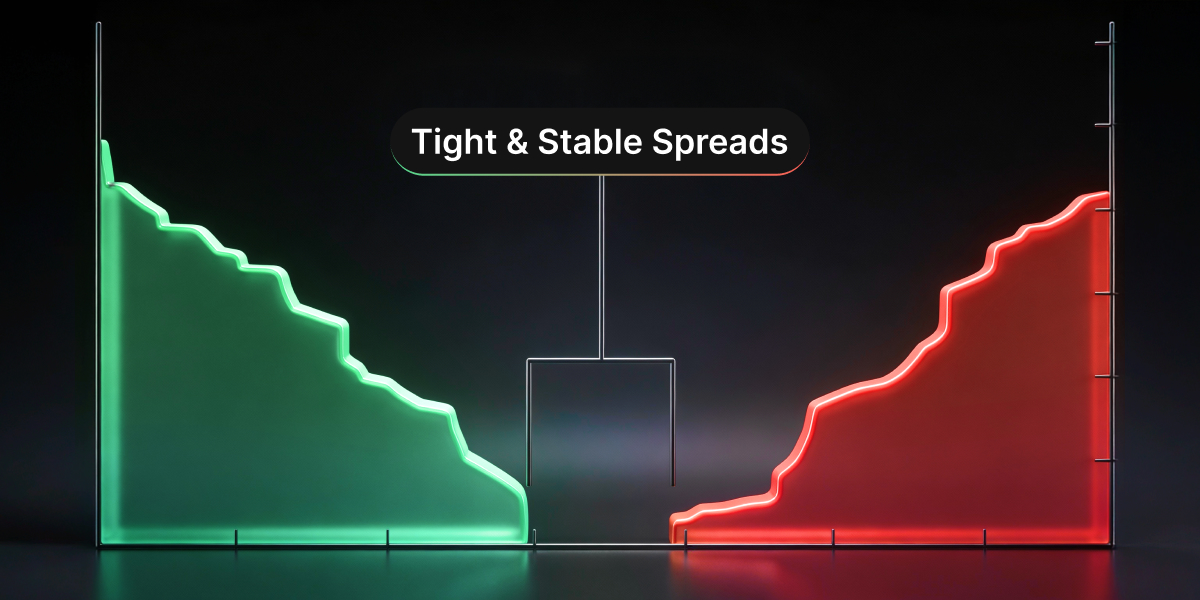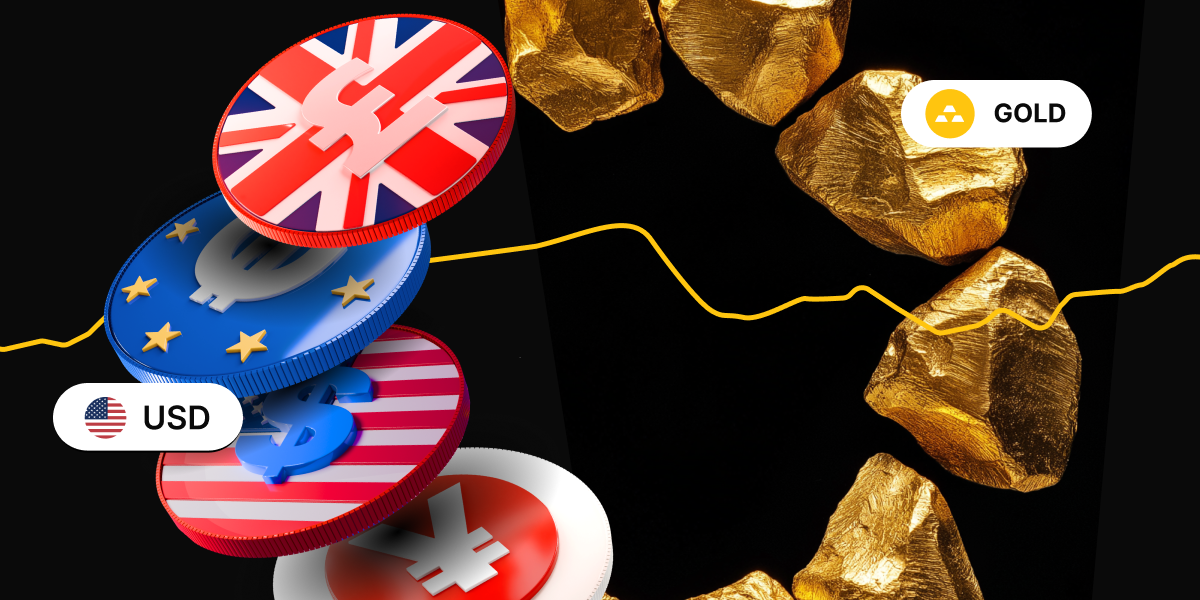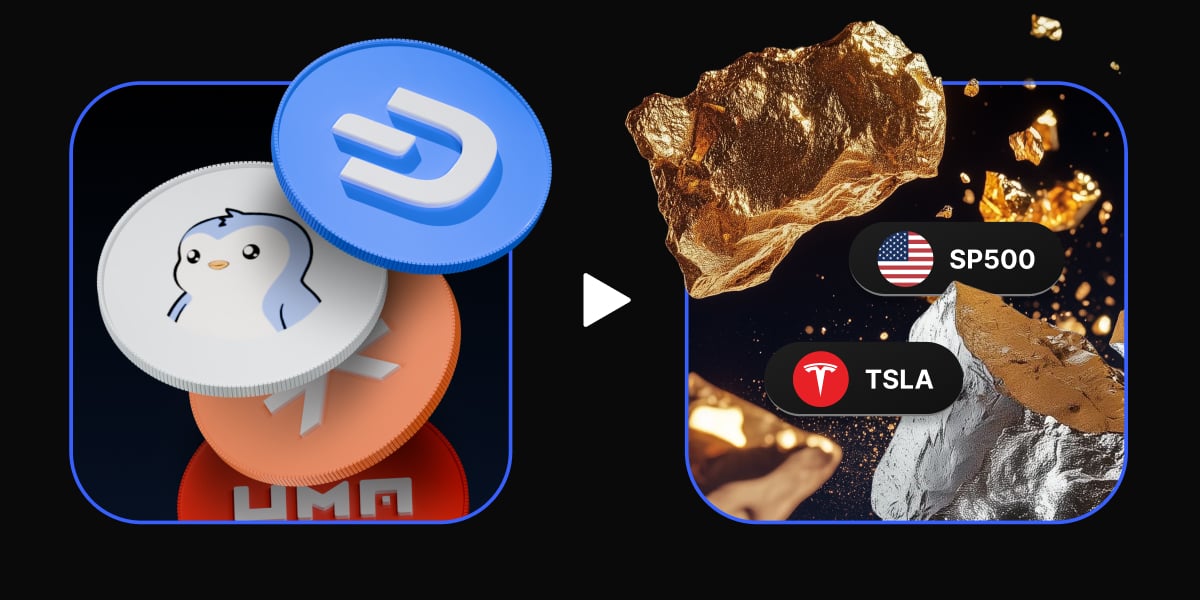Litecoin is often considered and referred to as the silver to Bitcoin as digital gold. The two early crypto assets have since gone hand and hand; however, there are several key differences between them that make them significantly different as an investment and trading asset.
This guide comparing the cryptocurrencies will help explain all the ways that Litecoin versus Bitcoin are similar and highlight the key differences that separate them from one another. When all the pros and cons are laid out on the line, the answer to which is better to invest in, Litecoin vs Bitcoin, will become much more apparent.
There are also key details on each asset price forecasts, a look at past price history, and information on how to trade the two cryptocurrencies.

Litecoin Vs Bitcoin: What Are The Key Differences Between Digital Silver and Gold?
Litecoin uses a fork of Bitcoin Core source code, so they are bound to share several key similarities. They also target a similar investor audience and have the same currency-like use case, essentially making them compete with one another also.
Here are the most important ways the two assets differ, as well as in which ways they resemble one another.
Concepts And Creation
Bitcoin is the first ever cryptocurrency and the first ever peer-to-peer form of digital cash. The asset was created by the mysterious Satoshi Nakamoto, who, even today, is still unknown and is presumed deceased. They made the cryptocurrency decentralizd so it functions without the need for a third party or intermediary.
However, they also left a legacy and a financial revolution behind them that has since taken on a new life and community of its own. Bitcoin started its life relatively worthless and very difficult to come by. It was something that only early tech enthusiasts had access to, through mining or through a connection with someone who was mining.
Early users didn’t know what it would be worth some day, and treated it carelessly, even losing them. For example, Bitcoin first was traded for pizza at a rate of 10,000 for two pizzas with toppings making it the first transaction. Later, it became the currency of choice for the dark web marketplace Silk Road due to the pseudo anonymity it provides.
However, its use and adoption during that phase could be what helped Bitcoin’s network begin to grow, and now, due to the network effect, it is an unstoppabl force to be reckoned with and has a market cap and energy requirement larger than some countries. The cryptocurrency has also since grown from worth next to nothing to $20,000 per coin.
It also helped create an entire crypto market, filled with altcoins like Litecoin that try to beat Bitcoin at its own game but ultimately have failed to do so. Instead, these altcoins live side-by-side with Bitcoin in harmony, and each has its own pros and cons.
Litecoin was created due to creator Charlie Lee’s fascination with Bitcoin. The altcoin shares Bitcoin’s code, mimics the same block reward structure, and more. They both act as payment currencies, albeit Litecoin is faster. Litecoin is cheaper per coin than Bitcoin, which helped create silver and gold nicknames and the relationship between the two crypto assets.
Litecoin’s belief system is the same as Bitcoin’s only seeking to do so at a slightly faster speed and transaction rate.
Transactions and Speed
Bitcoin was the first of its kind, so all it really had to do was work. Scaling, capacity, speed, and other issues would be addressed down the line, as more developers came onto the open source project and began creating second-layer technologies like Segregated Witness and Lightning Network.
Because Litecoin’s code is similar to Bitcoin’s, it is often used as a testnet for these technologies before they make it to Bitcoin. Bitcoin transactions take roughly ten minutes per blockchain confirmation. The cryptocurrency can handle approximately 5-7 transactions per second. Meanwhile, Litecoin generates blocks in 2.5 minutes and can handle 56 transactions per second.
The cryptocurrency got its name due to being a more lite version of Bitcoin due to these attributes. Litecoin is often used to send crypto from one platform to another due to the low cost and speed associated with its transactions.
Supply and Distribution
Both cryptocurrencies were extraordinarily early and are highly decentralized and widely distributed. Of course, there are plenty of whales that own both, just due to how crypto came to be. However, supplies are scarce due to the way each asset’s network is coded, and no more coins can ever be created.
In addition, only so many coins are currently in circulation, making them even more rare than it would appear. Millions of coins are also presumed lost. For example, Bitcoin’s creator is presumed deceased and was said to have wallets totaling over 1 million of the 21 million total BTC supply.
Both also rely on the same block reward halving mechanism and proof of work consensus method to secure the network underlying network each token underpins. Things differ in terms of supply and distribution when it comes to Litecoin’s supply of 84 million LTC. This amounts to four times as many Litecoin and is why the asset’s price per coin is much lower than Bitcoin’s. It also means that Litecoin’s price can never reach as high as Bitcoin’s.
Use Cases and Target Market
The biggest challenge Litecoin faces is the fact that Bitcoin and Litecoin currently target the same investors and traders. Ethereum, for example, has an entirely different use case, and developers build smart contracts and decentralized apps on top of it. In contrast, both Bitcoin and Litecoin are used as payment currencies or a store of value.
Bitcoin and Litecoin are called digital silver and gold. Like the cryptocurrencies referenced, both precious metals have limited supplies, are used as a store of value, and have been used as a currency over the ages. Few other assets have these attributes, making them unique as an investment or trading asset.
Things could soon change for Litecoin, however, as Bitcoin gets much more expensive by the day, and Litecoin remains relatively affordable by comparison. Litecoin was also just added to PayPal alongside Bitcoin, Ethereum, and Bitcoin Cash, exposing the altcoin to 346 million mainstream users of the payment service.
If every PayPal user wanted to buy just one Litecoin, currently at around $50, there is only enough for every user to own 0.24 LTC. There is far less than that in terms of Bitcoin to go around, but at a price of about $14,000 currently, far fewer people are going to spring for a full coin.
If and when Litecoin becomes regularly adopted as a payment currency, then it will have more utility compared to Bitcoin due to the faster speed, lower transaction fees, and a higher rate of transactions per second. But because cryptocurrencies aren’t used for anything more than speculation or a store of value currently, this could be some ways off. The pandemic has sped up the trend towards digital currencies, so it could also happen sooner than expected, especially now with PayPay involved.

LTC Vs BTC: Which Is Better To Invest?
For the differences outlined above, one will make a better investment than the other. However, technical analysis, expert price predictions, and historical price action can also be telling about what to expect in terms of performance in the near-term and long-term for each.
Below we’re going to compare Bitcoin vs Litecoin in terms of price action, forecasts, charts, and more.
Litecoin Vs Bitcoin: Historical Price Action Reviewed
When Litecoin first arrived in the crypto market, it traded for a price of around $3, according to CoinMarketCap. At its peak, it traded at $375 per LTC token. Litecoin has been through two bear markets now, and after the first peak fell to as low as $1. Following the high in 2017, Litecoin dropped to around $20. This powerful volatility makes Litecoin an excellent asset for trading, even more so than an investment.
Investors who bought at the high would be out money by holding the entire drawdown. At the same time, traders that shorted LTC using CFDs on cryptocurrency margin trading platforms like PrimeXBT would have profited instead.
The same goes for Bitcoin. Bitcoin first sold for the price of just a fraction of a penny and climbed as high as $20,000 in 2017. It then later fell to as low as $3,200. After hitting that bottom, Bitcoin climbed back all the way to $14,000, then fell back to under $4,000 once again. Now, it’s back at $14,000 and ready for a new bull market. By the time you read this, the cryptocurrency’s price may have rocketed out of control.
Litecoin has since lagged behind Bitcoin, however, this also makes Litecoin more likely to outperform Bitcoin at some point once again. Phases where altcoins like Litecoin outperform Bitcoin, are called and altcoin season and Litecoin has been left out of the last few.
After so much stagnancy in Litecoin, and due to the sudden exposure of the tiny LTC supply to 346 million PayPal users who are more likely to buy the cheap coin and not Bitcoin, it very well could make for a strong investment in the future once again.
Litecoin Vs Bitcoin: Expert Price Predictions
Litecoin price predictions are nowhere near as high as Bitcoin price predictions, but that is due to the difference in each coin’s max and circulating supply. It would take substantial capital to take Litecoin to the price per Bitcoin, and Bitcoin would likely rise with it and absorb any chance of becoming bigger.
Still, several people believe that Litecoin could reach as high as $3,000 per token. Litecoin started out at $3 and did more than a 100x to go to $375 at the all-time high. It would take less than a 100x from current prices to get to $3,000 per token, and only 10x from the former all-time high.
Bitcoin, however, is forecast to reach as high as $1 million to $500,00 per BTC in the future, and the predictions are made by some of the smartest minds and inventors in the world. And while that number is much larger per coin, making it the more notable figure when it comes to analyst’s headline-making calls.
Litecoin Vs Bitcoin: The Must Read Crypto Market Conclusion
When it comes to Bitcoin vs Litecoin, it is difficult to call a clear winner, and even despite several similarities, the two assets still complement one another well. For this very reason, it is why the two cryptocurrencies are referred to as digital silver and gold.
The two precious metals have always had similar reasons to hold one or the other and were used for all the same reasons. As an investment, they have both done well over the centuries and only increased in value. They also make a fantastic trading instrument due to market volatility. The same goes for Bitcoin and Litecoin, except volatility is supercharged.
And just like gold and silver, that have a unique relationship, so do Bitcoin and Litecoin. According to the gold versus silver ratio, silver often performs better than gold after gold rallies have run out of steam. Investor money might come out of gold and into silver. Oddly enough, the same behavior happens in crypto,
Bitcoin makes an excellent investment and trading asset due to how powerful the price swings are and the high price per coin now and in the long term according to price predictions. Litecoin, on the other hand, may sound like it isn’t as exciting due to the $50 per coin currently and the $3,000 per coin predictions, it is a lot easier to own dozens of LTC instead o BTC, and the ROI is just as strong if not better.
LTC Vs BTC: How To Trade Litecoin With PrimeXBT
Trading Litecoin on PrimeXBT can be done through either the LTCUSD or LTCBTC trading pairs. CFDs for fiat to crypto and crypto to crypto trading pairs are available for trading on advanced trading platforms like PrimeXBT and can be much more profitable than investing alone, as the price history of these assets has clearly shown.
Rather than buy and hold these wildly volatile assets, traders on PrimeXBT can long or short Litecoin or Bitcoin, or even trade the LTCBTC trading pair to profit whichever way markets turn. Registration is easy and takes less than 60 seconds and a 0.001 BTC minimum deposit to get started.
After a deposit is made to a BTC address, users can fund a trading account and access positions on as many as 50+ trading instruments all under one roof. The award-winning platform also offers technical analysis software and a variety of customizations to give traders the ultimate in control.
Litecoin vs Bitcoin vs Ethereum vs Ripple
Each cryptocurrency asset offers a variety of unique benefits over one another. Use the rest of these guides to learn which cryptocurrency is the best to trade or invest in using PrimeXBT.
Ripple vs Bitcoin
Ethereum vs Bitcoin
Bitcoin vs Bitcoin Cash
Ethereum vs Ethereum Classic
Is Litecoin A Fork Of Bitcoin?
Litecoin is a fork of the Bitcoin Core source code, created by former Google engineer Charlie Lee. It functions very similar to Bitcoin and even has the same block reward halving system to reduce the LTC supply every four years.
What Is The Difference Between Litecoin And Bitcoin?
The most significant difference is in transaction speeds ranging from 2.5 minutes to 10 minutes, and transactions per second ranging from 5-7 to over 50 transactions per second. Litecoin was designed to be a faster and more efficient version of Bitcoin, hence the name "lite." LTC uses the Scrypt algorithm for its mining, while BTC uses SHA-256.
Will Litecoin Be As Big As Bitcoin?
Litecoin will never be as big as Bitcoin in terms of price per coin or market capitalization. It just isn't possible given Bitcoin's head start, smaller supply, and more extensive market cap spread across fewer coins.
Is Litecoin A Good Investment?
Litecoin makes an excellent investment, but an even better trading instrument. During the bear market, it failed as an investment but made for a great trading asset.
Is Bitcoin Or Litecoin A Better Investment?
It is difficult to say, and anything is possible. Bitcoin has more support, broader adoption, and is far in the lead already. But Litecoin is cheap per coin, faster, and still has plenty of value. Like gold and silver, it doesn't matter if you invest in Bitcoin or Litecoin. Both can go together great in the same portfolio.
Should I Buy Litecoin or Bitcoin?
Similar to gold and silver, buying both can be a good idea since they both offer value. They are also both great to trade and can be even more profitable with proper risk management and skills.
The content provided here is for informational purposes only. It is not intended as personal investment advice and does not constitute a solicitation or invitation to engage in any financial transactions, investments, or related activities. Past performance is not a reliable indicator of future results.
The financial products offered by the Company are complex and come with a high risk of losing money rapidly due to leverage. These products may not be suitable for all investors. Before engaging, you should consider whether you understand how these leveraged products work and whether you can afford the high risk of losing your money.
The Company does not accept clients from the Restricted Jurisdictions as indicated in our website/ T&C. Some services or products may not be available in your jurisdiction.
The applicable legal entity and its respective products and services depend on the client’s country of residence and the entity with which the client has established a contractual relationship during registration.




